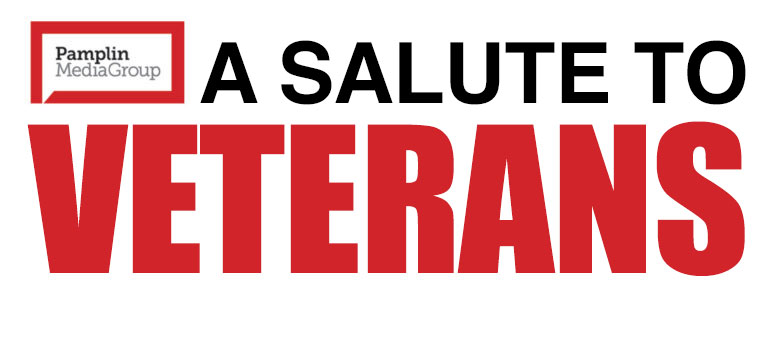Tualatin veteran served many roles in U.S. Air Force
George Hamilton was only 21 years old when he joined the U.S. Air Force in 1974. By the time he retired more than 20 years later at the rank of master sergeant, he had witnessed the end of the Cold War.
During his service, the Tualatin resident was responsible for everything from medicine to missiles.
“I was a GLCM (ground-launched cruise missile) Ranger. … They put you through the school and everything you can think of,” he said. “I used to go out as a Ranger medic on missile crew.”
Hamilton spent most of his time at Greenham Common in the United Kingdom, a location selected as one of two British bases to support the U.S. Air Force’s ground-launched cruise missiles in the 1980s. The location of those missiles — intended to deter Soviet and Eastern Bloc forces from attacking Western Europe — drew extensive protests from various groups, including the Greenham Common Women’s Peace Camp.
Hamilton was also an independent duty medical technician, which is similar to a physician assistant. As a medical technician, Hamilton attended to medical emergencies in hospitals and the field.
“I was the field medic, like the field medics on TV. Well, they probably looked better than I did,” he joked. “They called me ‘the doc.’”
Hamilton’s wife, Alice Hamilton, said the protests against the cruise missiles and those who staffed them by the residents in Greenham Common often proved distressing, adding that her husband “would be known to deliver one of their babies one day and they would throw Molotov cocktails at his truck the next.”
Hamilton said there is an expression that “Greenham never leaves you,” and “Greenham has never left me,” he added.
If you look up the history of the military base and view the protest photos, he said, it’s easy to understand why.
Hamilton was later stationed at Davis-Monthan Air Force Base in Tucson, Arizona, where he taught in the cruise missile school.
“That’s where I met George, and that’s where we began our life together,” said Alice Hamilton, a retired captain in the U.S. Air Force herself. She served three years as a pediatric nurse practitioner.
George Hamilton appreciates his military service — especially his fateful assignment to Davis-Monthan. He retired with the rank of master sergeant.
In October 2001, several years after he left the service, a massive brain injury placed George Hamilton in a wheelchair.
It’s believed that multiple concussions may have contributed to what’s known as a spontaneous subdural hematoma. He is extremely sensitive to light, and bright lights cause him migraine headaches.
However, none of those issues kept Hamilton from competing in his first-ever National Veterans Wheelchair Games held last July in Portland.
“It was a lot of fun to do,” said Hamilton, who participated in the hand cycling and air pistol events.
The hand cycling event was held at Portland International Raceway, where participants propel their specialized bikes using both hands.
“It was a great ride. I did seven laps,” Hamilton said, noting he covered a total of 14 miles along with the help of a guide.
It was an extremely tough competition, Hamilton admitted. But for him, he said, it wasn’t about winning but the accomplishment of finishing.
“Was I sure I could do it? I guess I could characterize it this way: My wife knew when I got to the next to the last lap. She knew I was going to go all the way and finish it,” he said. “We got ‘er done. It was a major league moment for me.”
In the vision-impaired shooting competition, the marksman shoots by sound. George Hamilton relied on Alice as a spotter.
“I would tell him whether he needed to move the gun up-down, left-right, so he could find the target and then acquire the sound, and as the sound becomes loud and steady, that means he’s at the bullseye point, and that’s when he has to pull the trigger,” said Alice Hamilton, who is a Beaverton High School graduate.
He won a gold medal.
“Not bad for a guy with troublesome vision,” George Hamilton said.


